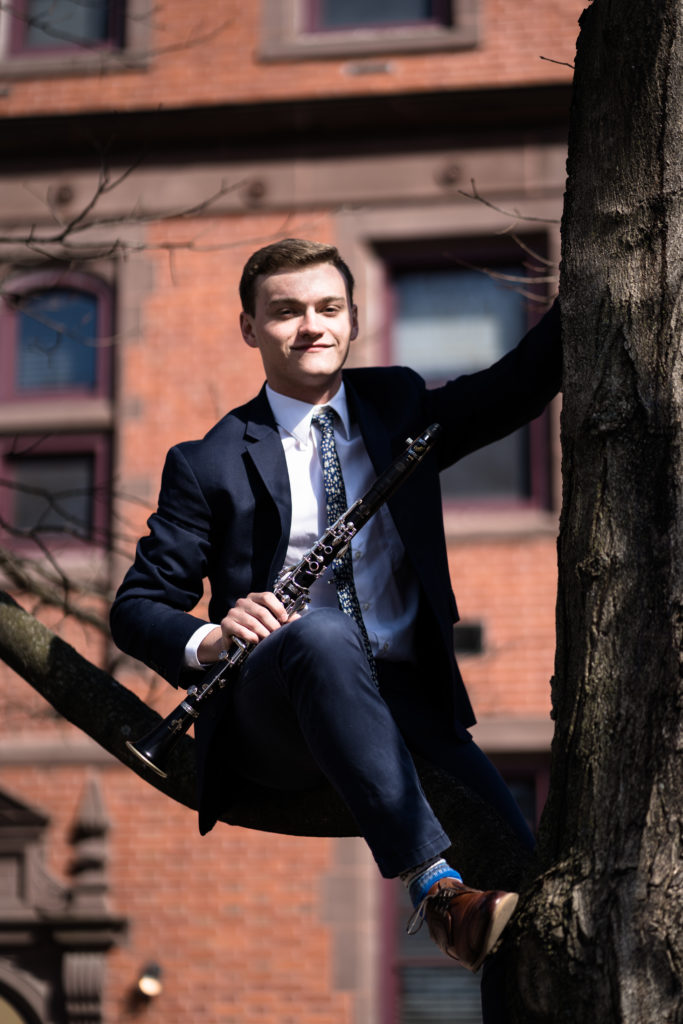Sunderman Spotlight: Brian Ruether
By Katherine Lentz, Arts & Entertainment Editor
What is your major?
I’m a music and biology double major.
What is your instrument?
I mostly play the clarinet, but I also play the saxophone, drum set, and electronic wind instrument.
What has been the most important part of your conservatory experience?
I’ve discovered a lot of meaning in hearing music as not only a form of expression but as a form of language. The ethnomusicology courses I’ve taken have exposed me to music in a wide variety of cultural contexts, which has led me to constantly ask myself what the music I play is attempting to communicate to my audience. I’m not just trying to make people feel a random emotion when I play – I want to understand the composer’s preconceived motives within the piece as well as create my own. Only then can my instrument come to life and have a conversation with my audience and/or other performers.
How will your time here have an influence on your career in music?
I’ve learned to enjoy every practice session, be it alone or in an ensemble. The radiative enthusiasm of Dr. McCutcheon and Dr. Scott, among others, has taught me to make each time I pick up my horn a meaningful one. This mentality has allowed me to focus harder and practice with more determination, which will surely make a me a better musician in any future context.
What are your plans for after graduation?
Currently, I’m applying for research assistant positions in the biological sciences. I plan to apply to graduate programs in entomology toward the end of this year with hopes of starting in the fall of 2020. At graduate school, I plan to continue playing the clarinet and other instruments in chamber ensembles.
Tell me about your recital.
I’ve had the pleasure of working with a great group of friends and musicians to prepare for this. The saxophone quartet I’m in will be playing an arrangement of Chick Corea’s famous “Spain,” with an additional part for the conga drum. I’m also going to be featuring the first movement of Brahms’ trio for clarinet, cello, and piano, a modernist clarinet solo piece, and Scott McAllister’s “X,” a clarinet concerto arranged for clarinet and piano. There’s a wide variety of genres that I think the audience will find engaging.
What is your advice for future conservatory students?
One of the biggest lessons of college is time management, and if you can incorporate a steady practice schedule into your daily routine, you can perform anything. If a piece really speaks to you, even if it seems challenging, go for it! At the conservatory, there are so many opportunities for growth and development of your technique and sound: make sure to take full advantage of everything you want to do in your four short years. Contrarily, also make sure to say no when you have to!

